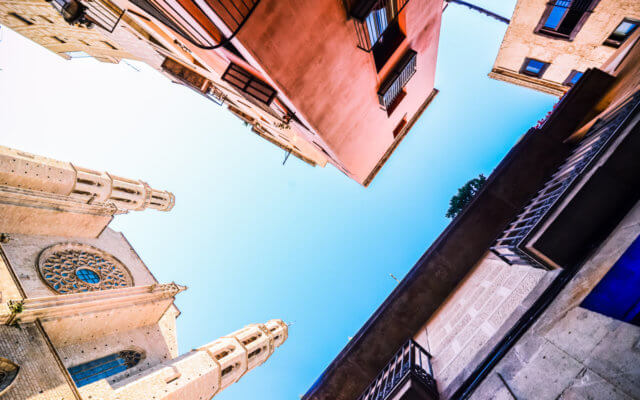ERASMUS+, Klíčová akce 1: tréninkový kurz
Termín konání: 1.—9. duben 2025
Místo konání: Cristuru Secuiesc, Transylvánie, Rumunsko
Český tým: 2 účastníci (ve věku 18+ let)
Přečtete si info-pack.
Hostitelská organizace: Asociația de Tineri Din Ardeal
Report z projektu:
Členové přijímací organizace byly přívětiví od první chvíle, když pro mě poslali na nádraží. Po celou dobu byli připraveni poskytnout veškerou podporu. Prostory semináře byly prostorné a moderní a tak bylo příjemné poslouchat přednášky a pracovat na úkolech. Celý týden jsme měli možnost ochutnávat tradiční jídla z rumunské kuchyně, které nám připravovali přímo v budově a tak jsme měli všechno pod jednou střechou.
První den jsme se trochu poznali s dalšími účastníky, prostřednictvím her a prohlédli si město. Průvodce nám dělal jeden z organizátorů, který nám řekl něco k jeho historii, osobnostem a památkách.
Následující den jsme měli představit situaci členů Romské komunity v České republice z hlediska socioekonomické situace, zdravotní péče, podpory státu, komunitních aktivit a dobrých příkladů. Bylo zajímavé si uvědomit, jak se situace liší v různých státech, pro mě hlavně uvědomění, že uznání skupiny lidí jako národnostní menšiny není samozřejmostí. Taky je dobré vědět, že efektivní pomoc záleží na velikosti krajiny a počtu jejich obyvatel. Den jsem ukončili dokumentem „Za řekou“, který ukazuje krutou realitu jedné z chudobných osad a život lidí v ní.
Tenhle den jsme se šli na vlastní oči podívat na osadu z dokumentu. Provázela nás sociální pracovnice, která denně navštěvuje obyvatele a zjišťuje, jestli potřebují nějaké léky nebo jestli je někdo nemocný. Mohli jsme se taky zeptat obyvatel na věci, které nás zajímaly a pro mnohé to byl opravdu dojemný zážitek. Odpoledne byl čas sdílet naše pocity a zamyslet se, jaká by byla naše představa pomoci, kterou by obyvatelé osady potřebovali a hledali jsme pozitivní i negativní stránky této pomoci.
V následujících dnech bylo hlavním tématem jak vést program se zaměřením na neformální učení a jak být dobrým facilitátorem. Vedoucí nám taky představili cestu hrdiny a strukturu programu. Abychom celý čas nebyli jen uvnitř, vydali jsme se na prohlídku města Sighisoara, které je známé hlavně díky Vladovi Tepešovi, inspiraci pro příběh o Drákulovi, který tady strávil část svého života. Procházku líbeznými uličkami nám nezkazil ani déšť. Večer byl věnován poznávaní romské a rumunské kultury. Vyslechli jsem si pohádku, naučili se pár slov a frází a povídali jsme si o tradicích, které ještě pořád můžeme vidět v některých osadách.
V následujících dnech jsme si mohli vyzkoušet, jak vést program pro skupiny a jak vybrat vhodné téma a vhodné postupy. Všichni účastníci do toho dali něco svého a tak jsme se navzájem obohatili zkušenostmi.
Poslední den jsme věnovali ohlédnutí se zpět a uvědomili si, co jsme se naučili a v čem jsme se posunuli. Opravdu všichni jsme nabrali kompetence v různých oblastech, jako příprava programu, schopnost být facilitátorem, poznání motivace a kvality svých zdrojů, spolupráce ve skupině, smysluplná komunikace a mnoho dalších. Tyhle kompetence jsme si taky mohli zapsat do certifikátu youthpass, který jsem všichni obdrželi.
Zároveň nás organizátoři pozvali, abychom se vrátili na toto krásné místo v rámci plánovaných projektů, kde bude prostor dozvědět se opět něco nového z kultury nejen romské, ale taky všech krajin, které se zúčastní a my se už teď těšíme, jaké zážitky nám to opět přinese.
Miriam P.


